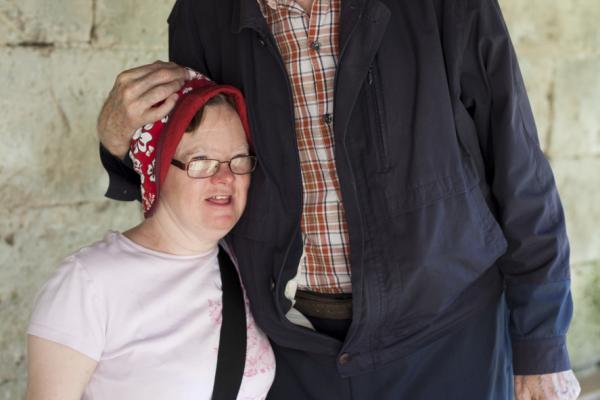Three times in the past month, the Nebraska Legislature voted for a bill to repeal capital punishment and replace it with life without parole. The governor has promised to veto the legislation, and an override vote is looming. Many of the Christian lawmakers made it clear they cast their votes against the death penalty, in part, to promote a whole life ethic.
The leader of the group is Sen. Colby Coash of Lincoln, a Catholic who put his personal reasons for opposing capital punishment into one easily understood phrase.
“I am pro-life,” he said.
In many ways, Ireland remains a heavily Catholic country.
Yet the emphatic “Yes” vote to same-sex marriage rights on May 22 represents a seismic shift in the nation’s social liberalization and challenges the Roman Catholic Church to rethink its role in Irish society.
The problems of the world can overwhelm us. When we are confronted by the Divine in the cries of human need, we may, like Isaiah, feel unworthy and ill-equipped to respond. However, if we allow this Divine experience to transform our human weakness, we can find the courage and strength to answer that call, as Jean Vanier has, with a bold, “Here I am!” What follows may be more difficult than we can imagine, but we can be confident in the knowledge that the work we do is Holy work.
Well, here we are again. The season that seems to come around all too often and stick around far too long. Some of our dinner table dynamics are still trying to recover from "conversations” that percolated during the last election season and our “unfriend” counts have finally slowed.
So, how does the Jesus community live in this election season as a signpost of the kingdom rather than a pawn in a political power play?
“It’s a new form of Christianity,” explained Opoku Onyinah, “now also living in the West.” He’s the president of the Ghana Pentecostal and Charismatic Council, and also heads the Church of Pentecost, begun in Ghana and now in 84 nations. Onyinah was speaking at a workshop on “How Shall We Walk Between Cultures,” and explaining how African Christianity is interacting with postmodern culture. It was part of Empowered21, which gathered thousands of Pentecostals in Jerusalem over Pentecost.
I’ve found this idea intriguing. Pentecostalism, especially as it is emerging in the non-Western world, is a postmodern faith. Often I’ve said, “An evangelical wants to know what you believe, while a Pentecostal wants to hear your spiritual story.” Perhaps it’s an oversimplification. But Pentecostalism embodies a strong emphasis on narrative and finds reality in spiritual experiences that defy the logic and rationality of modern Western culture.
Christine Caine gave a passionate and prophetic call for the church to be continually changing, even while at its core, it is “the same.” That constant change is driven by God’s continuing call to be sent as witnesses in the world. “We want power,” she told the spiritually hungry Pentecostals gathered before her. “But we don’t know what it’s for.” It’s not for ourselves, not for our own spiritual ecstasy. The power of God’s Spirit is given for us to be witnesses to God’s transforming love. And one can’t change the world without being in the world, instead of running from it. “We’re not here,” Christine Caine proclaimed, “to entertain ourselves.”
You could feel how her words stuck a deep chord within the crowd of those listening. I walked over to sit by a friend who is bishop of a large Pentecostal church. “This is the best word that’s been spoken,” he said to me. And that’s after we had heard eight world famous Pentecostal preachers.
It’s both ironic and appropriate that the new Disney film Tomorrowland is being released exactly a week after Mad Max: Fury Road. The new film from director Brad Bird (The Incredibles, The Iron Giant, Mission Impossible: Ghost Protocol) is the polar opposite of post-apocalyptic. It’s a film that’s hugely optimistic about the future, and our ability to fix the world’s problems through good old-fashioned ingenuity. The movie occasionally veers towards overly naïve, and its internal logic doesn’t always work. But despite some problems, it remains a refreshing alternative to a summer movie season that’s otherwise been filled with darker worldviews.
The film starts not with a jump forward, but backward, to the 1967 World’s Fair, where boy genius Frank Walker arrives with a homemade jetpack and hopes of winning an inventing competition. There Frank is befriended by a mysterious girl named Athena (Raffey Cassidy), who takes him to the magical world of Tomorrowland, a colorful futuristic place full of advanced discoveries and retro-space age design.
Her once boundless energy starts to fail by midday. She started radiation treatment on May 21, mainly in an effort to forestall the possible collapse of her spine, which would leave her helpless and in intractable pain.
“That sounds a little formidable to me,” she says.
“I was never much for suffering.”
She goes on, her words carefully chosen. “Am I grateful for this? Not exactly. But I’m not unhappy about it. And that’s very difficult for people to understand.”
Model breastfeeding, Fox News vs Jesus, 'Street Sense,' Bin Laden's bookshelf, and more!
A middle-aged Iranian man sat down next to me at Shirin Neshat’s new retrospective, "Facing History," in Washington, D.C. He looked at me, smiling and bewildered, and said, “All of this, this whole museum, just for her?”
He wasn’t the only one surprised. In Neshat’s opening comments to a packed house at a meet-the-artist presentation, she said, “It’s an honor as a woman and as a Middle Easterner to hold this much space.”
And she didn’t just take up space. She filled it — covered the entire second floor of the Hirshhorn Museum of Modern Art with Muslim women, Iranian history, Persian music, and creative commentary on the role of gender and politics on the life of a woman in exile.








